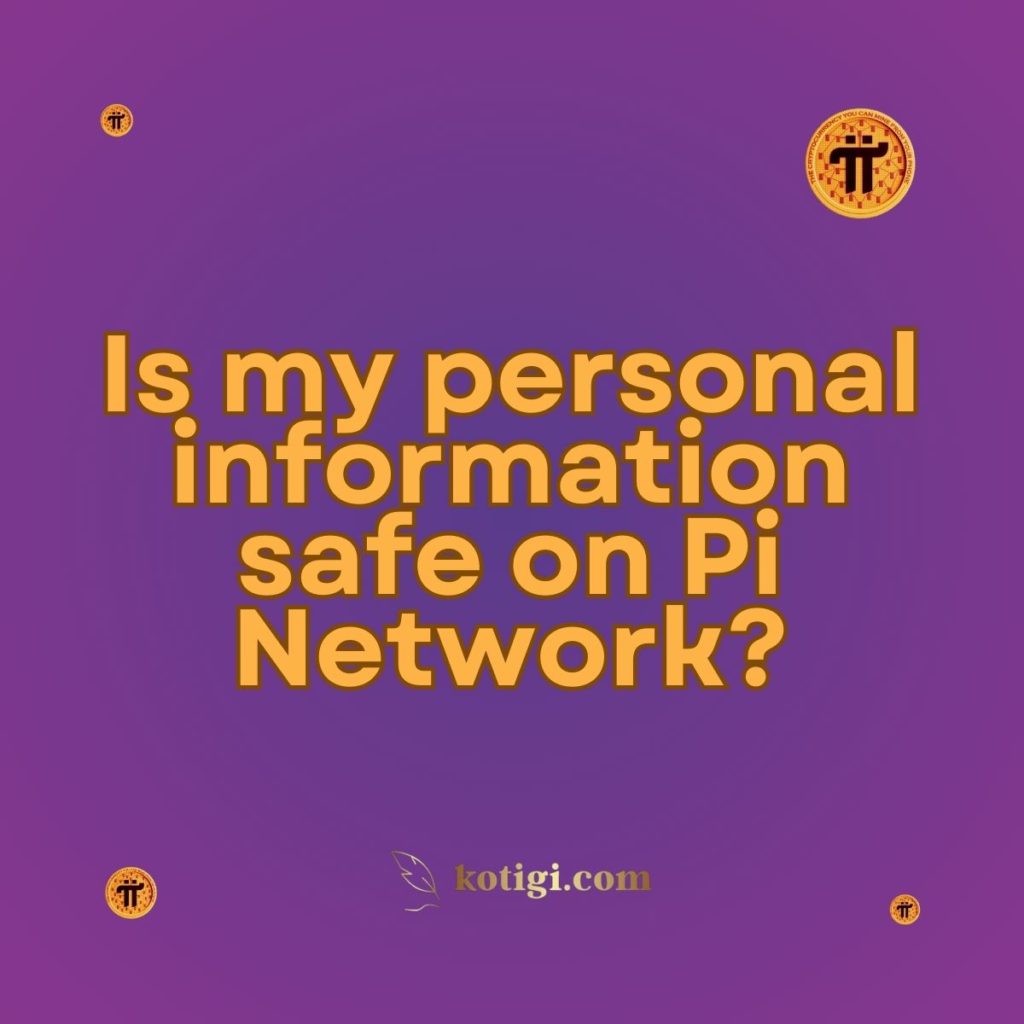
Is my personal information safe on Pi Network?
Your personal information on Pi Network is designed to be secure, but like any digital platform, it’s important to understand how your data is protected and what measures you can take to enhance your privacy. Here’s an overview of the safety of your personal information on Pi Network:
1. Data Collection and Usage
1.1. Required Information:
When you join Pi Network, you’re required to provide certain personal information, such as your phone number, name, and possibly other identification details during the Know Your Customer (KYC) process. This information is used to create and verify your account and ensure compliance with regulations.
1.2. KYC Verification:
The KYC process is a standard practice in many cryptocurrency networks to prevent fraud and ensure that each user is a real person. While this process requires submitting sensitive personal information, Pi Network partners with trusted third-party providers to handle the KYC verification securely.
2. Security Measures in Place
2.1. Encryption:
Pi Network uses encryption to protect your personal data. Encryption ensures that your information is transformed into a secure code that is difficult to access by unauthorized parties. This is a common and effective method for securing data on digital platforms.
2.2. Secure Servers:
Your data is stored on secure servers that are protected by firewalls and other security protocols. This helps prevent unauthorized access to your personal information and reduces the risk of data breaches.
2.3. Access Controls:
Access to your personal information is restricted to authorized personnel within the Pi Network team and trusted KYC partners. These access controls help ensure that your data is only handled by those who need it for legitimate purposes.
3. Potential Risks
3.1. Centralization Concerns:
While Pi Network aims to be decentralized, some aspects of data management are currently centralized. This centralization can present risks if the servers or databases storing your personal information are compromised. However, the Pi Network team is committed to implementing robust security measures to mitigate these risks.
3.2. Phishing and Scams:
As with any online platform, there is a risk of phishing attacks or scams targeting Pi Network users. Phishing attempts may involve fake websites or messages designed to trick you into providing your personal information. Always ensure you’re interacting with official Pi Network channels and avoid sharing sensitive information with unverified sources.
4. User Responsibility
4.1. Protect Your Credentials:
Your account credentials, including your password and seed phrase, are critical to keeping your personal information safe. Use a strong, unique password for your Pi Network account and store your seed phrase in a secure location. Never share these details with anyone.
4.2. Enable Two-Factor Authentication:
If available, enable two-factor authentication (2FA) on your Pi Network account. 2FA adds an additional layer of security by requiring a second form of verification, such as a code sent to your phone, whenever you log in.
4.3. Be Vigilant:
Stay alert to any suspicious activity or communications related to your Pi Network account. If you receive an unexpected request for personal information, verify its authenticity before responding.
5. Future Developments
5.1. Ongoing Security Enhancements:
As Pi Network continues to develop, the team is likely to introduce new security features and protocols to further protect user data. Staying informed about these updates will help you take advantage of the latest security enhancements.
5.2. Transparency and User Trust:
The Pi Network team has emphasized their commitment to transparency and user trust. They may provide regular updates on how they are handling user data and what measures are being taken to protect it. Engaging with official Pi Network channels and communities can help you stay informed and reassured about your data’s safety.
Conclusion
Pi Network implements a variety of security measures to protect your personal information, including encryption, secure servers, and strict access controls. While the network is committed to keeping your data safe, it’s also important for you to take an active role in protecting your account by using strong passwords, enabling 2FA, and being cautious of phishing attempts. As the network evolves, ongoing security enhancements and transparency efforts will likely continue to strengthen the protection of your personal information.





